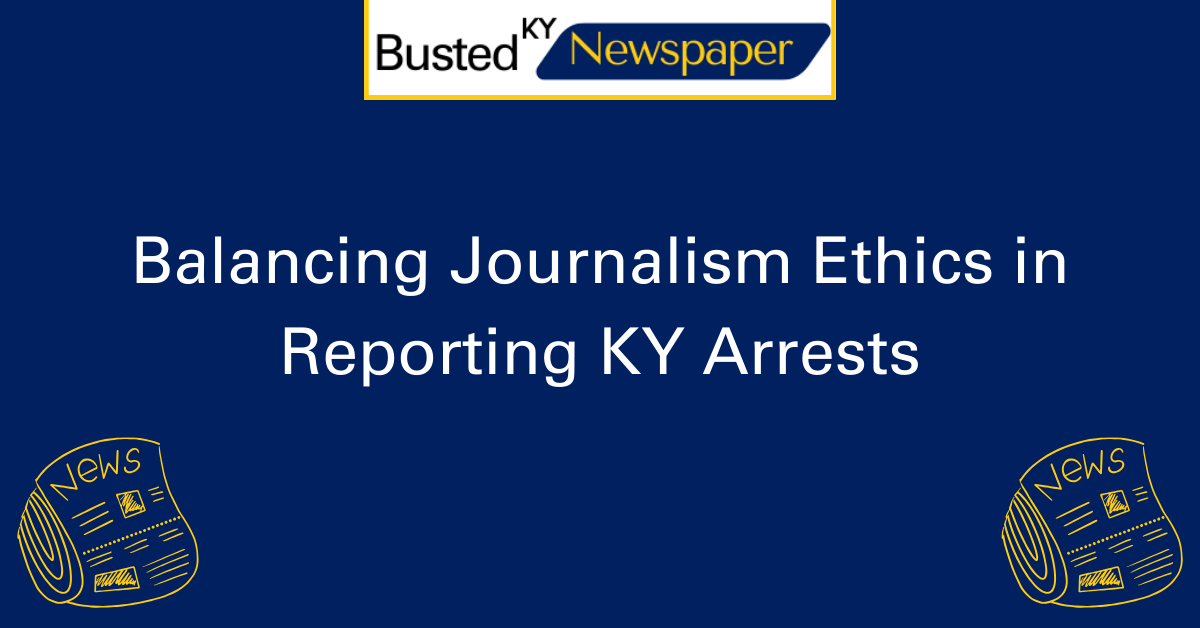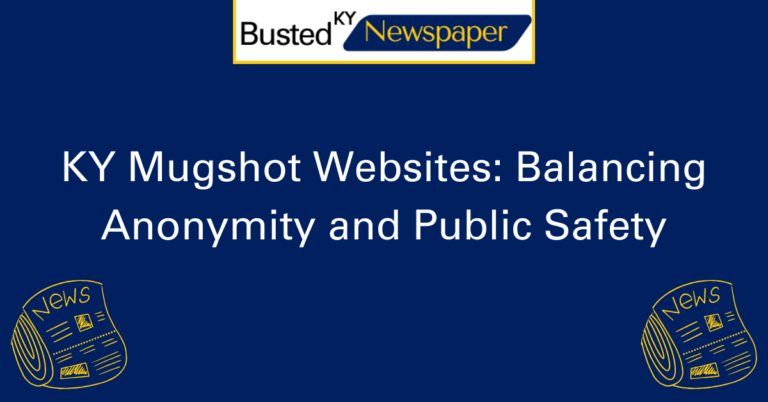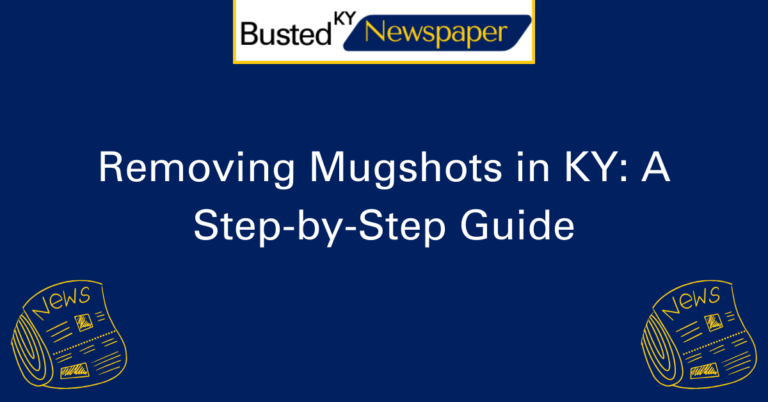Balancing Journalism Ethics in Reporting KY Arrests
In the realm of journalism, the responsibility to report accurately and ethically is of utmost importance. This holds even when it comes to reporting arrests in the state of Kentucky. The challenge lies in finding the delicate balance between providing the public with the necessary information and respecting the rights and privacy of the individuals involved.
When it comes to reporting on arrests, journalists face a critical decision-making process. On one hand, the public has a right to know about criminal activity in their community. By providing information about arrests, journalists can help create a safer society by keeping citizens informed and aware. On the other hand, journalists must also consider the potential harm that can be caused by releasing certain details. Protecting the privacy and presumption of innocence of individuals is equally important and must be taken into account.
Exploring the Ethical Challenges of Reporting Arrests
In the realm of journalism, the responsibility to report accurately and ethically is of utmost importance. This holds even when it comes to reporting arrests in the state of Kentucky. The challenge lies in finding the delicate balance between providing the public with the necessary information and respecting the rights and privacy of the individuals involved.
The Critical Decision-Making Process
When it comes to reporting on arrests, journalists face a critical decision-making process. On one hand, the public has a right to know about criminal activity in their community. By providing information about arrests, journalists can help create a safer society by keeping citizens informed and aware. On the other hand, journalists must also consider the potential harm that can be caused by releasing certain details. Protecting the privacy and presumption of innocence of individuals is equally important and must be taken into account.
Striking a Balance: The Public’s Right to Know
One of the key considerations in reporting arrests is the public’s right to know. When journalists share information about arrests, they empower the community to make informed decisions and take necessary precautions. By shedding light on criminal activity, journalists play a vital role in maintaining social order and promoting a safer environment for all.
Respecting Privacy and Presumption of Innocence
While the public’s right to know is important, journalists must also prioritize respecting the privacy and presumption of innocence of individuals involved in arrests. Releasing too many details or disclosing personal information can jeopardize an individual’s reputation and potentially hinder their ability to receive a fair trial. Journalists must exercise caution and discretion when reporting on arrests.
Considerations for Responsible Reporting
To report on arrests responsibly, journalists should adopt a set of ethical guidelines. These guidelines may include anonymizing certain details, such as names and addresses, to protect the privacy of individuals. Additionally, journalists should verify the accuracy of information before sharing it with the public, ensuring that they do not contribute to the spread of misinformation or false accusations.
Collaboration with Law Enforcement and Legal Experts
To navigate the complexities of reporting arrests, journalists can benefit from collaborating with law enforcement and legal experts. By engaging in open dialogue and seeking guidance from professionals, journalists can gain a deeper understanding of the ethical considerations surrounding arrests and ensure that their reporting aligns with legal and ethical standards.
FAQ’s
What is the importance of accurate and ethical reporting in journalism?
In the realm of journalism, the responsibility to report accurately and ethically is of utmost importance. This holds even when it comes to reporting arrests in the state of Kentucky. The challenge lies in finding the delicate balance between providing the public with the necessary information and respecting the rights and privacy of the individuals involved.
What factors do journalists consider when reporting on arrests?
When it comes to reporting on arrests, journalists face a critical decision-making process. On one hand, the public has a right to know about criminal activity in their community. By providing information about arrests, journalists can help create a safer society by keeping citizens informed and aware. On the other hand, journalists must also consider the potential harm that can be caused by releasing certain details. Protecting the privacy and presumption of innocence of individuals is equally important and must be taken into account.
Conclusion
Reporting on arrests requires striking a delicate balance between the public’s right to know and respecting the rights and privacy of individuals. By adopting ethical guidelines, collaborating with experts, and prioritizing responsible reporting, journalists can contribute to a safer society while upholding the fundamental principles of journalism.







